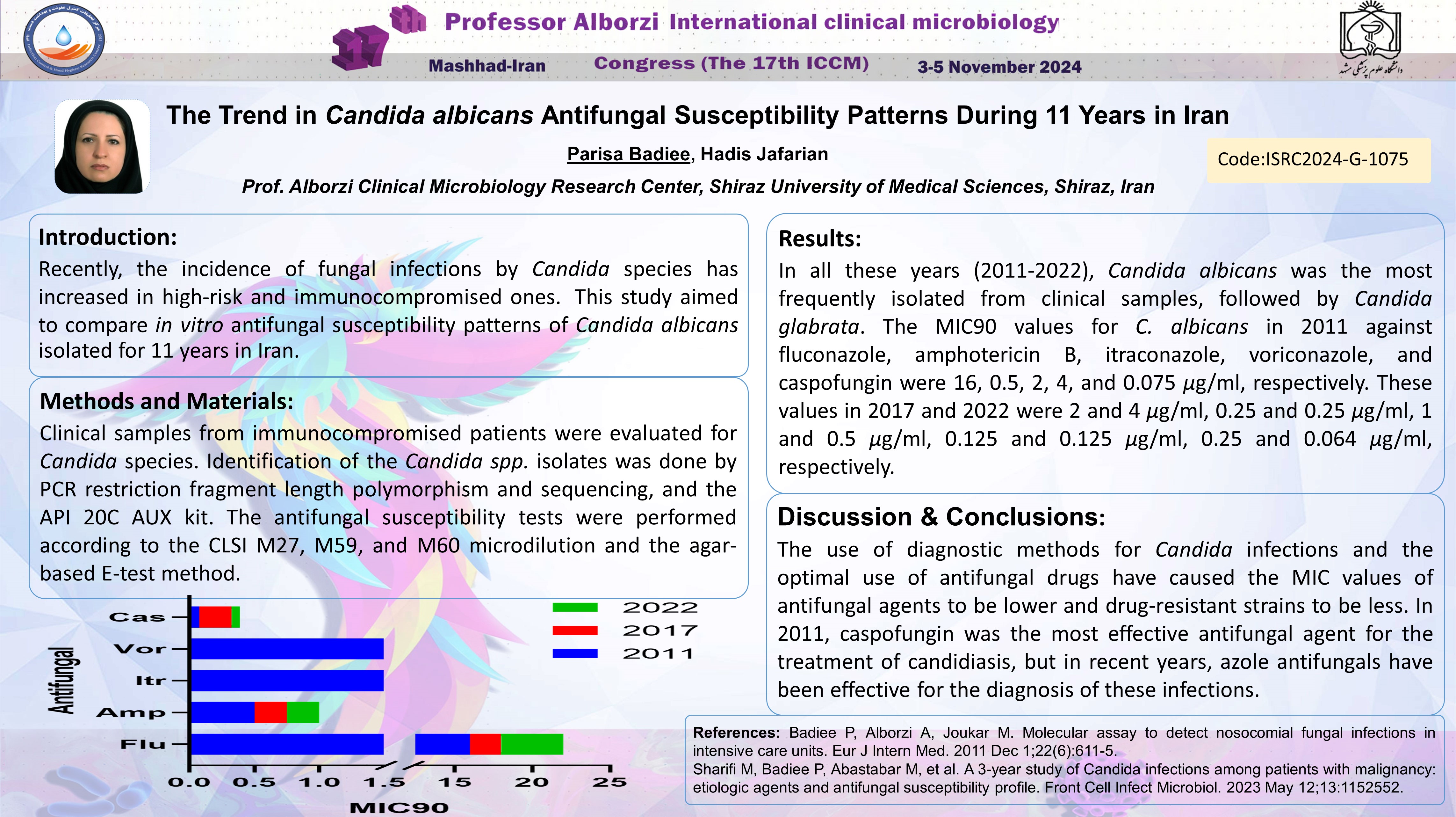روند حساسیت دارویی کاندیدا آلبیکنز در دوره ۱۱ ساله در ایران
کد: G-1075
نویسندگان: Parisa Badiee © ℗, Hadis Jafarian
زمان بندی: زمان بندی نشده!
دانلود: دانلود پوستر
خلاصه مقاله:
خلاصه مقاله
The Trend in Candida albicans Antifungal Susceptibility Patterns During 11 Years in Iran Parisa Badiee, Hadis Jafarian Prof. Alborzi Clinical Microbiology Research Center, Shiraz University of Medical Sciences, Shiraz, Iran Introduction: Recently, the incidence of fungal infections by Candida species has increased in high-risk and immunocompromised ones. This study aimed to compare in vitro antifungal susceptibility patterns of Candida albicans isolated for 11 years in Iran. Material and Methods: Clinical samples from immunocompromised patients were evaluated for Candida species. Identification of the Candida sp. isolates was done by PCR restriction fragment length polymorphism and sequencing, and the API 20C AUX kit. The antifungal susceptibility tests were performed according to the CLSI M27, M59, and M60 microdilution and the agar-based E-test method. Results: In all these years (2011-2022), Candida albicans was the most frequently isolated from clinical samples, followed by Candida glabrata. The MIC90 values for C. albicans in 2011 against fluconazole, amphotericin B, itraconazole, voriconazole, and caspofungin were 16, 0.5, 2, 4, and 0.075 μg/ml, respectively. These values in 2017 and 2022 were 2 and 4 μg/ml, 0.25 and 0.25 μg/ml, 1 and 0.5 μg/ml, 0.125 and 0.125 μg/ml, 0.25 and 0.064 μg/ml, respectively. Conclusion: The use of diagnostic methods for Candida infections and the optimal use of antifungal drugs have caused the MIC values of antifungal agents to be lower and drug-resistant strains to be less. In 2011, caspofungin was the most effective antifungal agent for the treatment of candidiasis, but in recent years, azole antifungals have been effective for the diagnosis of these infections.
کلمات کلیدی
Keywords: Candida albicans, fluconazole, amphotericin B, itraconazole, voriconazole, caspofungin
